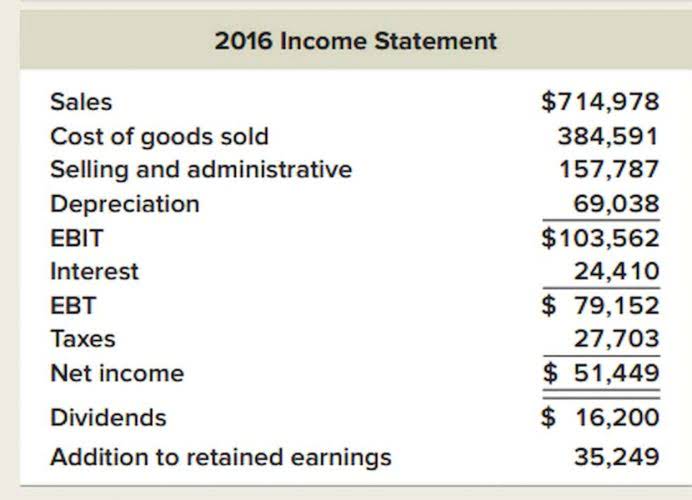How Much Math Is Required for a Degree in Accounting?

Women make up more than half of all accounting personnel but are less likely than men to hold leadership roles. Accounting is a deadline-driven business that requires you to work until Bookkeeping for Painters the job is done. That’s especially true during the January to April 15 tax season, or before and after Sept. 15 when corporate taxes are filed. On the plus side, results-oriented people such as accountants derive a sense of accomplishment from completing standardized tasks with short completion times.

Must-Have Skills for a Successful Accounting Career
Being an accountant does require a reasonable amount of mathematical knowledge and understanding. However, this doesn’t mean you need to be a math genius to succeed in this field. How much skill in mathematics you need to be an accountant is a somewhat different question. If you want to work in accounting, math will be a part of your career and, in fact, your daily life. You can’t avoid math entirely in most areas of business, but you will likely use more math as an accountant than you would in a role like human resources specialist. I’ve had more than one person complement me on what must be great math skills, or at least a love of math since I’m an accountant.

Research and Academic Fields
- Each aspiring accountant follows their own career path, but most qualify to start working in entry-level accounting roles after earning a four-year bachelor’s degree.
- Furthermore, mathematical concepts are integral to various aspects of accounting, including inventory valuation, depreciation calculations, and tax accounting.
- Specialists in risk management draw on probability theory to determine the likelihood of various outcomes.
- There are also other jobs which are fantastic starting points for anyone wishing to enter the financial services sector, such as Accounts Payable or Receivable Clerk, or Bookkeeper.
- The ability to interact and communicate with others effectively is vital in virtually every area of accounting.
Accountants earn above-average salaries, see steady demand and have many opportunities to advance and specialize in their profession. Since everything an accountant calculates is based on specific formulas, it helps to be good at math. However, that does not mean someone interested what are retained earnings in accounting as a profession needs to be a math whiz or possess the ability to crunch numbers in his head. Especially today, when there are many digital tools out there that can help an accountant do his job. He claims to have a 4yr degree in accounting, but can only find 30K jobs by searching on sites like career builder and craigslist. This poster is a ■■■■■ and nothing he says should be taken seriously in my opinion.
Top Accounting Degrees
There are many other skills, capabilities and attributes that employers will be looking for, rather than whether or not you’re a brilliant maths whizz. Accountants need to be well versed in the accounting software such as QuickBooks, Xero, and Sage in line with the industry standard. Accountants play a critical role in various business environments, including corporations, government, private practice, and non-profit organizations. In this article, we’ll be looking at whether you have to be good at math to be an accountant, and what other skills you need to have. Specialists in risk management draw on probability theory to determine the likelihood of various outcomes.
- The basic answer is if you can do the basic 4 functions very well, and maybe some algebra, you can do accounting.
- Brenna Swanston is an education-focused editor and writer with a particular interest in education equity and alternative educational paths.
- Much of what you will end up studying may depend on the kind of accounting job you pursue.
- Before I make it sound like math is completely a waste in accounting, let’s balance it out by discussing how there are still tremendous values if an accountant has good math skills.
- A career in accounting offers the prospect of good earning potential, job stability, and plenty of job opportunities because it’s relevant to almost every industry.
- You posted a similar post a few weeks ago that I responded to with a question and you never responded back.
- Accounting students develop these essential skills while completing a bachelor’s degree in accounting.
- As a result, accountants need to know how to work with fractions, decimals and percentages, including how to convert percentages.
- Accounts have access to calculators, excel, and often other programs that help with the math tasks of their day-to-day jobs.
- Much of the financial reporting that happens in accounting has to do with credits, which you add, and debits, which you subtract.
- For instance, accountants may use mathematical formulas to determine the value of inventory using methods like FIFO (First-In, First-Out) or LIFO (Last-In, First-Out).
- They should also have a strong understanding of Generally Accepted Accounting Principles and basic industry practices such as the double-entry system.
- However, if (like most people) math isn’t exactly your favorite thing, you might think that you don’t have what it takes to succeed in this occupation.
- While they do not need to be computer whizzes, accountants need to be prepared to use basic office software to complete daily tasks and communicate with coworkers, managers and clients.
These degrees build advanced accounting knowledge and allow students to delve into specialized topics. Accountants use these abilities—plus knowledge gained through college-level accounting programs—to provide financial services to businesses and individuals. The truth is that there’s more to working in accounting than math. You won’t need to do complex calculus, and software tools mean that there’s little manual number crunching. In this article, we’ll look at the skills you actually need to work in the modern accounting field and how studying at ICT will prepare you for an accounting career. A career in accounting offers the prospect of good earning potential, job stability, and plenty of job opportunities because it’s relevant to almost every industry.
![]()
What math level is acceptable or preferred for accounting?

The stereotypical idea of an accountant may bring to mind a person who’s glued to a computer screen full of datasets, but in reality, the job involves much do you need to be good at math to be an accountant more than that. Strong math and analytical skills are a must for accountants — you’ve got those already. Double-entry accounting requires an understanding of algebra to balance debits and credits.